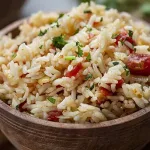Papaya Perfection: 2024’s Top 4 Remarkable Health Tips Revealed by Nutrition Professionals

Health Tips from Nutrition Experts on Papaya
Papaya, a tropical fruit, is esteemed among nutrition professionals for its diverse health benefits. Its notable strengths lie in its antioxidant power, featuring significant levels of vitamin A, vitamin C, and vitamin E. These antioxidants play a crucial role in mitigating the risk of heart disease by preventing the oxidation of cholesterol, a process vital as oxidized cholesterol is more susceptible to forming blockages, potentially leading to heart-related issues.

Beyond its antioxidant properties, mango is acknowledged for its anti-inflammatory effects, as emphasized by nutrition professor Felicitas Bouche Ocampo. The ability to counter inflammation is essential for overall health, playing a vital role in preventing chronic diseases. Furthermore, mango’s positive impact extends to eye health, with regular consumption being associated with preventing eye blindness in children, according to insights from nutrition professional Isis Lima Souza. This benefit is credited to the fruit’s high levels of vitamins and antioxidants, contributing to maintaining healthy vision.
In addition to its antioxidant and anti-inflammatory attributes, mango offers digestive benefits. The presence of an enzyme called amylase in mango aids in carbohydrate digestion, potentially leading to improved overall digestion when incorporated into one’s diet. This digestive enzyme can contribute to a more efficient breakdown of carbohydrates, enhancing the digestive process.
In summary, mango stands out as a tropical fruit with a well-rounded profile of health advantages. From its antioxidant-rich composition to anti-inflammatory properties, eye health benefits, and digestive aids, mango continues to be celebrated by nutrition professionals for its positive impact on overall well-being.
Key Nutrients in Papaya
Papaya is a nutritional powerhouse, packed with key nutrients essential for overall health. Rich in vitamin C, this tropical fruit boosts the immune system and promotes healthy skin. It also contains vitamin A, supporting eye health, and vitamin E, contributing to antioxidant defense. Additionally, papaya is a good source of folate, fiber, and potassium, fostering digestive health and aiding in weight management. The enzyme papain found in papaya further enhances digestion, making it a versatile and nutrient-dense addition to a balanced diet.
It is a nutrient-rich fruit that offers a host of health benefits. Its potent antioxidant vitamins help keep your cells healthy, improve skin integrity, and support overall well-being. So go ahead and enjoy this tropical delight—it’s not only delicious but also nourishing!
- Vitamin C: It stands out as a generous supplier of vitamin C, offering an impressive 88.3 milligrams per serving. Meeting and surpassing the recommended dietary allowance for most adults, which falls between 75 and 90 milligrams, just one cup of papaya ensures the fulfillment of 100% of your vitamin C needs.
- Vitamin A: It proves to be a superb reservoir of vitamin A, with one cup of fresh papaya chunks (equivalent to 145 grams) providing a notable 68.2 micrograms of this essential nutrient. Vitamin A plays a pivotal role in sustaining healthy vision and bolstering overall immune function.
- Fiber: Fiber content in it is significant, offering 2.5 grams in a 1-cup serving. This essential nutrient plays a crucial role in promoting digestive health and contributes to the regulation of blood sugar levels.
- Potassium: It plays a role in meeting your daily potassium needs, providing 263.9 milligrams per serving. This essential mineral is crucial for sustaining optimal heart function and maintaining a proper balance of fluid levels in the body.
- Beta Carotene and Lycopene: It contains beta carotene (397.3 micrograms) and lycopene (2650.6 micrograms). These carotenoids act as powerful antioxidants, protecting your cells from damage and promoting overall health
- Low in Fat and Protein: It is virtually fat-free, with each 1-cup serving containing less than 1 gram of fat. They also provide less than 1 gram of protein per serving
It not only adds a burst of flavor but also provides essential vitamins and antioxidants. So get creative and enjoy this tropical gem in various ways!
Here are some delicious and nutritious ways to incorporate it into your diet:
- Fresh Papaya Chunks: Enjoy it as a refreshing snack by simply cutting it into chunks. You can eat it as is or sprinkle some lime juice for an extra zesty flavor.
- Papaya Smoothie: Blend it with other fruits like banana, pineapple, and a splash of coconut milk for a tropical smoothie. Add a handful of spinach or kale for added nutrients.
- Papaya Salsa: Dice it and mix it with red onion, jalapeño, cilantro, and a squeeze of lime juice. Use this vibrant salsa as a topping for grilled chicken or fish.
- Papaya Salad: Create a refreshing salad by combining its slices with avocado, arugula, and feta cheese. Drizzle with a light dressing made from olive oil and balsamic vinegar.
- Papaya Breakfast Bowl: Layer its chunks with Greek yogurt, granola, and a sprinkle of chia seeds. It’s a delightful way to kickstart your day.
- Papaya Chutney: Cook it with ginger, garlic, and spices to make a flavorful chutney. Serve it alongside grilled meats or as a condiment.
Top 4 Remarkable Health Tips
Tip 1: Boosting Immunity Naturally
Boosting immunity naturally is a holistic approach to fortify the body’s defenses against illnesses. Incorporating a well-balanced diet rich in vitamins, minerals, and antioxidants is key. Foods such as citrus fruits, leafy greens, and berries provide essential nutrients like vitamin C and antioxidants, known for their immune-boosting properties. Regular exercise, sufficient sleep, and stress management also play pivotal roles in supporting a robust immune system. Additionally, staying hydrated and maintaining a healthy lifestyle contribute to overall well-being, ensuring the body is better equipped to fend off infections and stay resilient.
Papaya’s Immune-Boosting Properties
Incorporating it into your diet can fortify your immune system and contribute to overall health. So, slice up some pa-paya and savor its delicious benefits
It is a tropical fruit, possesses remarkable immune-boosting properties. Let’s delve into its benefits:
-
Vitamin C: It is a potent source of vitamin C, which plays a crucial role in supporting the immune system. Vitamin C enhances the production of white blood cells, which are essential for fighting infections and maintaining overall health.
-
Antioxidants: It is rich in antioxidants, including beta carotene, lycopene, and vitamin E. These compounds protect your cells from damage caused by free radicals, thereby bolstering your immune response.
-
Digestive Health: A healthy gut contributes to a robust immune system. It contains an enzyme called papain, which aids in digestion and supports gut health.
-
Anti-Inflammatory Properties: Chronic inflammation weakens the immune system. It’s natural anti-inflammatory properties help keep inflammation in check.
-
Vitamin A: It provides a good dose of vitamin A, essential for maintaining healthy skin and mucous membranes—the first line of defense against pathogens.
-
Minerals: It is a source of potassium, magnesium, and calcium, which play roles in immune function and overall well-being.
Tip 2: Healthy Digestion with Papaya
Tip 2 focuses on promoting healthy digestion with it. This tropical fruit, known for its enzyme papain, aids in breaking down proteins and facilitating smoother digestion. Consuming it regularly can contribute to improved digestive efficiency, helping prevent issues such as bloating and indigestion. The natural enzymes in it support the body’s digestive processes, making it a tasty and beneficial addition to a diet aimed at maintaining optimal digestive health.
Enzymes in Papaya Aid Digestion
Remember, incorporating fresh papaya into your diet provides a natural and delicious way to benefit from papain’s digestive properties. So, enjoy this tropical fruit and let it work its magic
It contains a remarkable enzyme called papain, which plays a significant role in aiding digestion. Let’s explore how this enzyme benefits our digestive system:
-
Protein Breakdown: Papain is a proteolytic enzyme, meaning it breaks down proteins into smaller peptides and amino acids. When you consume it, papain assists in the digestion of dietary proteins, making them easier for your body to absorb.
-
Reducing Bloating and Gas: If you’ve ever felt bloated or experienced gas after a heavy meal, papain can come to the rescue. It helps prevent the accumulation of undigested proteins in the gut, reducing discomfort.
-
Anti-Inflammatory Properties: In addition to its digestive role, papain also exhibits anti-inflammatory effects. By calming inflammation in the digestive tract, it contributes to overall gut health.
-
Supporting Nutrient Absorption: Proper protein digestion ensures that essential amino acids are available for absorption. These amino acids play crucial roles in various bodily functions, including tissue repair and immune system support.
-
Supplemental Use: Papain is available in supplement form and is sometimes used to aid digestion, especially for individuals with conditions like irritable bowel syndrome (IBS) or gastritis.
Papaya Recipes for Digestive Health
Remember, papaya not only satisfies your taste buds but also supports your digestive system. Enjoy these recipes and let papaya work its magic
It is not only incredibly delicious but also offers a variety of health benefits, including aiding digestion. Let’s explore some delightful recipes that promote gut health:
-
Papaya Smoothie:
- Kick off your day with a reinvigorating papaya smoothie.
- Blend together:
- Half cup frozen papaya chunks
- Half cup banana chunks
- Half cup Greek yogurt
- One cup almond milk
- A drizzle of honey
- Pour into a large glass and enjoy!
-
Papaya Jam:
- Create a flavorful papaya jam to spread on toast or use as a topping.
- Combine:
- Ripe papaya (peeled, seeded, and diced)
- Sugar (adjust to taste)
- A splash of lemon juice
- Simmer the mixture until it thickens, then let it cool. Store in a jar and savor the tropical goodness!
- Papaya Gelato:
-
-
- For a cool treat, make papaya gelato:
- Blend ripe papaya with coconut milk, a touch of honey, and a pinch of salt.
- Freeze the mixture in an ice cream maker until creamy and smooth.
- Scoop into bowls and enjoy a refreshing dessert
- For a cool treat, make papaya gelato:
-
-
Papaya Bars:
- Whip up papaya bars for a snack or dessert:
- Mix papaya puree with oats, shredded coconut, and a bit of maple syrup.
- Press the mixture into a baking dish and bake until golden.
- Cut into bars and relish the tropical flavors!
- Whip up papaya bars for a snack or dessert:
-
Papaya Lime Cheesecake:
- Combine the creaminess of cheesecake with the zing of lime and papaya:
- Make a graham cracker crust.
- Blend cream cheese, lime zest, lime juice, and papaya puree.
- Pour over the crust and chill until set.
- Garnish with fresh papaya slices and lime zest.
- Combine the creaminess of cheesecake with the zing of lime and papaya:
Tip 3: Radiant Skin and Hair with Papaya
Tip 3 delves into achieving radiant skin and hair without relying on papaya. Instead, focus on incorporating a variety of nutrient-rich foods into your diet. Include fruits like berries and oranges, rich in vitamin C for skin rejuvenation. Leafy greens and nuts provide essential vitamins and minerals that contribute to hair health. Additionally, staying well-hydrated and maintaining a balanced diet with omega-3 fatty acids from sources like fish or flaxseeds can enhance skin elasticity and promote shiny, healthy hair. Regular skincare routines and protective measures against environmental stressors also play a vital role in achieving a radiant complexion and lustrous locks.
Papaya’s Beauty-Enhancing Nutrients
To enhance your beauty from within, enjoy papaya as a snack, in smoothies, or as part of your skincare routine. Your skin will thank you!
Papaya, a tropical fruit, not only delights your taste buds but also enhances your natural beauty. Let’s explore its beauty-boosting nutrients:
-
Vitamin C: It is a rich source of vitamin C, which plays a vital role in collagen production. Collagen is essential for maintaining skin elasticity, reducing wrinkles, and promoting a youthful complexion.
-
Beta Carotene: The vibrant orange color of it comes from its high beta carotene content. Beta carotene converts to vitamin A in the body, supporting healthy skin, hair, and nails.
-
Hydration: It has a high water content, keeping your skin hydrated and plump. Proper hydration is key to a radiant complexion.
-
Enzymes: Papain and chymopapain, enzymes found in it, gently exfoliate the skin. Regular use can help remove dead skin cells, revealing a smoother, brighter surface.
-
Antioxidants: It is loaded with antioxidants like vitamin E and lycopene, which protect your skin from oxidative stress caused by free radicals. This helps prevent premature aging.
-
Minerals: It contains essential minerals like magnesium, potassium, and calcium, which contribute to overall skin health.
DIY Papaya Beauty Treatments
Remember to do a patch test before applying any new treatment to your face, especially if you have sensitive skin. Enjoy the benefits of papaya and let your skin glow
Papaya is a versatile fruit that can work wonders for your skin. Here are some DIY papaya beauty treatments to enhance your natural glow:
-
Papaya Face Mask for Oily or Acne-Prone Skin:
- Cut one-fourth of a papaya into small pieces.
- Blend the papaya into a smooth puree.
- Add 1 tablespoon of honey and ½ tablespoon of lemon juice to the puree and mix well.
- Apply the mask to your face, leave it on for about 15 minutes, and then rinse off. This mask helps unclog pores and remove excess oil.
-
Papaya and Turmeric Face Mask:
- Mash ½ cup of papaya in a mixing bowl.
- Add ½ teaspoon of turmeric powder and mix well.
- Wash your face and neck with warm water and an oil-free cleanser to open pores.
- Apply a thin layer of the mixture to your face, neck, and chest.
- Let the mask dry for 15 minutes and then rinse off. This mask brightens the complexion and hydrates the skin2.
-
Papaya Toner:
- Make a paste of raw papaya and cold water using a grinder.
- Mix rose water and camphor powder into the papaya paste.
- Store it in a pump bottle and refrigerate for future use.
- Dab a cotton ball with papaya toner and apply it all over your face.
-
Honey, Milk & Papaya Face Mask:
- This mask is great for bringing softness and suppleness back to dry skin.
- Mix together:
- Ripe papaya (peeled, seeded, and diced)
- Honey
- Milk
- Apply the mixture to your face, leave it on for a few minutes, and then rinse off. The lactic acid in milk brightens your skin, while honey and papaya hydrate and nourish
Tip 4: Managing Weight Effectively
Tip 4 focuses on managing weight effectively without relying on papaya. Instead, adopt a well-rounded approach by incorporating a balanced diet and regular physical activity. Emphasize whole foods, lean proteins, and a variety of vegetables to provide essential nutrients while controlling calorie intake. Engage in regular exercise, including both cardio and strength training, to promote overall fitness and support weight management. Pay attention to portion control, stay hydrated, and prioritize sufficient sleep, as these factors contribute to a healthy lifestyle and effective weight management without the specific reliance on papaya.
Papaya’s Role in Weight Management
Remember, while papayas offer potential health benefits, they are not a magical solution for weight loss. However, their low-calorie content and fiber make them a nutritious addition to a balanced diet
Papayas, also known as papaws or pawpaws, are soft, fleshy fruits that some people may consume in their quest for weight management. While more research is needed to fully explore the potential weight loss benefits of papayas, there are some promising findings:
-
Anti-Obesity Properties: In animal studies, scientists observed positive effects after adding fresh papaya juice to the diet of rats fed a high-fat diet. The rats lost weight and showed healthier cholesterol levels.
-
Metabolic Syndrome and Heart Health: Another study evaluated the impact of papaya pulp, leaves, and seeds on metabolic syndrome in rats. These components of papaya were found to reduce blood pressure, blood sugar, and cholesterol, which may contribute to preventing obesity.
-
Nutritional Information: Let’s take a closer look at the nutritional content of papayas per 100-gram serving:
- Calories: 43 kcal
- Total Fat: 0.26 g
- Saturated Fat: Less than 0.1 g
- Carbohydrates: 10.82 g
- Protein: 0.47 g
- Fiber: 1.7 g
- Vitamin A: 950 IU (19% of daily value)
- Vitamin C: 60.9 mg (68% of daily value)
- Potassium: 182 mg
- Calcium: 20 mg
- Iron: 0.25 mg
Both vitamin A and vitamin C are antioxidants, which can help prevent oxidative damage and promote overall health.
-
Incorporating Papayas into Your Diet:
- Mix papaya chunks with berries for breakfast.
- Add papaya chunks to oatmeal or breakfast cereal.
- Include papaya in fruit salads.
- Mix papaya chunks into vegetable, tuna, or chicken salads for a touch of sweetness.
- Enjoy papaya slices as a snack instead of chips.
Papaya Smoothie Recipes for Weight Loss
Remember, while these smoothies can complement your weight loss journey, it’s essential to maintain a balanced diet and stay physically active. Enjoy these papaya smoothies as part of a healthy lifestyle!
Here are some delicious and nutritious papaya smoothie recipes that can aid in weight loss:
- Papaya Banana Smoothie:
- This smoothie combines the goodness of papaya and banana, resulting in a creamy and satisfying drink.
- Ingredients:
- 1 cup fresh papaya
- ½ banana (frozen)
- ½ cup plain nonfat Greek yogurt
- ½ cup ice
- Instructions:
- Add all the ingredients to a blender and blend until smooth and creamy.
- Pour into glasses and garnish with your favorite toppings.
- Enjoy this refreshing and low-calorie smoothie
- Papaya Oatmeal Smoothie:
- This smoothie combines papaya with oats for added fiber and satiety.
- Ingredients:
- 1 cup fresh papaya
- ½ cup rolled oats
- Almond milk (adjust quantity for desired consistency)
- Cinnamon (optional, for flavor)
- Instructions:
- In a high-speed blender, combine papaya, oats, almond milk, and cinnamon.
- Blend until very smooth.
- Adjust the thickness by adding more milk or water.
- Enjoy this wholesome and filling smoothie
- Low-Calorie Papaya Smoothie:
- This smoothie is perfect for weight loss due to its low-calorie content.
- Ingredients:
- 1 cup fresh papaya
- ½ cup mango
- ½ cup plain yogurt
- Water (adjust for desired thickness)
- Optional: probiotic/prebiotic powder, sweetener, or protein powder
- Instructions:
- Add papaya, mango, yogurt, water, and any optional ingredients to a blender.
- Blend until smooth, adjusting water as needed.
- Pour into a glass and enjoy
- Papaya Green Tea Smoothie:
- This antioxidant-rich smoothie combines papaya, banana, orange, and green tea or coconut water.
- Ingredients:
- 1 cup fresh papaya
- ½ banana
- Juice of 1 orange
- Green tea or coconut water (adjust for desired consistency)
- Instructions:
- Blend all ingredients until smooth.
- Customize with your favorite additions (e.g., chia seeds, spinach, or honey).
- Sip on this refreshing and healthful smoothie
Lifestyle choices for weight management
In the pursuit of effective weight management, lifestyle choices play a pivotal role. Firstly, adopting a balanced and nutritious diet is paramount. Embrace whole foods, incorporating a variety of fruits, vegetables, lean proteins, and whole grains to ensure a diverse range of essential nutrients. Monitoring portion sizes and practicing mindful eating can further contribute to maintaining a healthy weight without relying on restrictive measures.
Regular physical activity is another cornerstone of a healthy lifestyle for weight management. Engage in a combination of aerobic exercises, such as walking or jogging, and strength training to promote overall fitness. Consistency is key, making it important to find activities that are enjoyable and sustainable over the long term. Additionally, integrating more movement into daily routines, such as taking the stairs or going for a brisk walk, can contribute to burning calories and supporting weight goals.
Adequate sleep is often underestimated in its impact on weight management. Poor sleep patterns can disrupt hormonal balance, leading to increased cravings for unhealthy foods and impacting metabolism. Prioritizing sufficient and quality sleep can enhance overall well-being and support weight management efforts.
Stress management is equally crucial. Chronic stress triggers the release of cortisol, a hormone associated with weight gain, particularly around the abdominal area. Incorporating stress-reducing practices such as meditation, yoga, or mindfulness can positively influence both mental well-being and weight management.
Hydration is a simple yet effective lifestyle choice for weight management. Drinking water before meals can create a sense of fullness, potentially reducing overall calorie intake. Choosing water over sugary beverages not only aids in hydration but also eliminates unnecessary calories, contributing to a healthier weight.
Lastly, cultivating a supportive and positive environment can significantly impact lifestyle choices for weight management. Surrounding oneself with like-minded individuals, seeking professional guidance, and celebrating small victories along the journey can provide the motivation and encouragement needed to sustain a healthy lifestyle and achieve weight management goals.
Conclusion:
In wrapping up this article, the overarching theme underscores the importance of a diverse and balanced approach to nutrition for holistic well-being. We’ve traversed the realms of antioxidant-rich fruits, essential nutrients, and immune-boosting tips, shedding light on the multifaceted aspects of maintaining a healthy lifestyle. Beyond specific fruits like papaya, our exploration into promoting radiant skin and hair without exclusive reliance on one ingredient reinforces the idea of a varied, nutrient-rich diet incorporating berries, oranges, leafy greens, nuts, and omega-3 fatty acids.
The journey also took us through effective weight management strategies, emphasizing the significance of a well-rounded approach. From whole foods and portion control to regular exercise and lifestyle choices, the path to sustainable weight management is illuminated without a sole focus on any particular fruit.
As we draw the curtains on this nutritional voyage, the resounding message echoes: a holistic and diversified approach to nutrition, coupled with mindful lifestyle choices, is the key to unlocking the gates to optimal health. This conclusion underscores the understanding that no single food item stands as a panacea for overall well-being; rather, it’s the collective tapestry of diverse and nutritious choices that paints the portrait of a healthier, more vibrant life.
FAQs:
Which tropical fruit is renowned for its antioxidant-rich profile and substantial levels of vitamins A, C, and E?
Answer: Mango, a tropical fruit, stands out for its rich antioxidant content, boasting significant levels of vitamins A, C, and E.
How does the consumption of this particular fruit contribute to minimizing the risk of heart disease?
Answer: Mango’s antioxidants play a crucial role by preventing the oxidation of cholesterol, thereby reducing the risk of heart disease. Oxidized cholesterol is more likely to form blockages in arteries, potentially leading to heart-related issues.
What role do antioxidants play in preventing cholesterol oxidation and the potential formation of blockages in arteries?
Answer: Antioxidants in mango neutralize free radicals, preventing the oxidation of cholesterol. This process is crucial, as oxidized cholesterol is more prone to forming blockages, reducing the risk of heart-related issues.
Can the regular inclusion of this tropical fruit in the diet help combat inflammation, as indicated by nutrition professionals?
Answer: Yes, mango is recognized for its anti-inflammatory effects, helping combat inflammation, which is essential for overall health and preventing chronic diseases.
In what ways does consistent consumption of this fruit positively influence eye health, particularly in preventing eye blindness in children?
Answer: Regular consumption of mango is associated with preventing eye blindness in children, attributed to its high levels of vitamins and antioxidants that contribute to maintaining healthy vision.
What specific nutrients in this fruit are credited with maintaining healthy vision?
Answer: The high levels of vitamins, especially vitamin A, in mango contribute to maintaining healthy vision and preventing eye-related issues.
Is there an enzyme present in this tropical fruit that aids in protein digestion, and how can it enhance overall digestion?
Answer: Mango contains an enzyme called amylase, which aids in carbohydrate digestion, potentially leading to improved overall digestion when incorporated into one’s diet.
How significant are anti-inflammatory effects in promoting overall health and preventing chronic diseases?
Answer: Anti-inflammatory effects are crucial for overall health, playing a vital role in preventing chronic diseases and promoting general well-being.
What is the impact of the high vitamin content of this fruit on a range of health benefits?
Answer: The high vitamin content of mango contributes to a diverse range of health benefits, including immune support, skin health, and overall well-being.
Beyond its antioxidant and anti-inflammatory attributes, can incorporating this tropical fruit into one’s diet offer additional digestive benefits?
Answer: Yes, in addition to its antioxidant and anti-inflammatory attributes, mango offers digestive benefits through the presence of amylase, an enzyme aiding in carbohydrate digestion and enhancing the overall digestive process.
You will also Like













